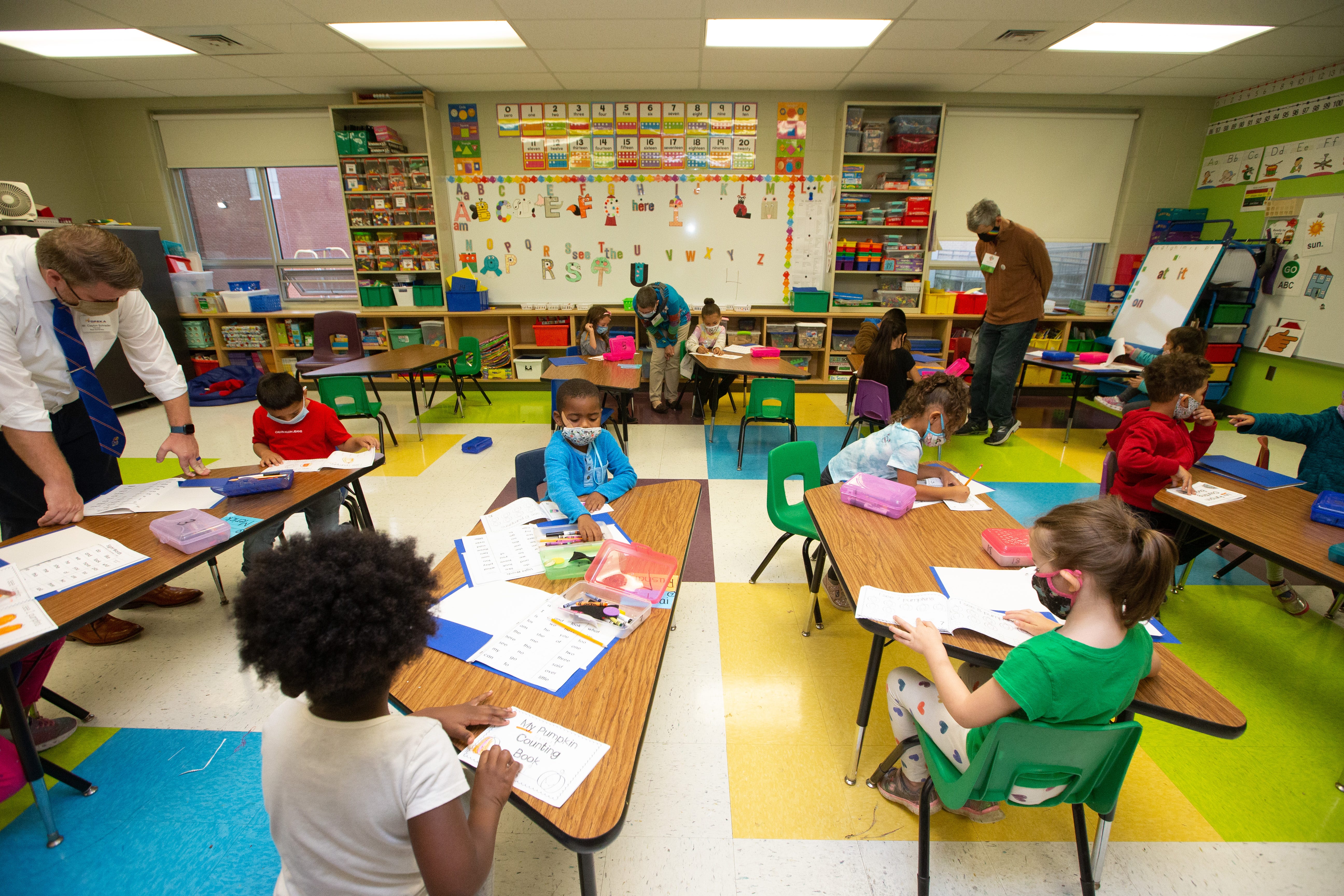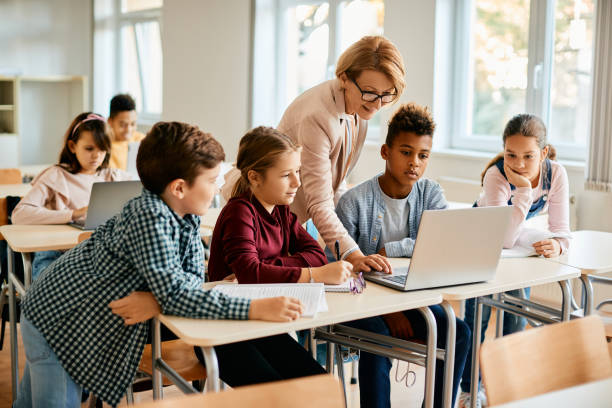The Best Primary Science Tuition Singapore for Effective Learning Methods
The Best Primary Science Tuition Singapore for Effective Learning Methods
Blog Article
Checking Out the Different Mentor Techniques in Main Scientific Research Education Today
Inquiry-based learning, hands-on experiments, and the integration of innovation are redefining exactly how educators involve young minds. In addition, joint techniques and set apart guideline are being utilized to provide to the diverse demands of trainees, enhancing both engagement and understanding.
Inquiry-Based Knowing
Inquiry-Based Learning (IBL) is an instructional approach that urges students to explore clinical principles through doubting, examination, and hands-on experimentation. This method emphasizes the function of pupils as active participants in their discovering, advertising critical thinking and problem-solving skills. By involving with real-world questions, students end up being curious and determined, which enhances their understanding of scientific concepts.
In IBL, educators serve as facilitators, assisting trainees as they browse their questions instead than delivering info directly. This student-centered technique permits distinction, accommodating different discovering rates and styles. Trainees create abilities in creating theories, designing experiments, and assessing data, which are important for clinical literacy.
Furthermore, IBL cultivates cooperation among trainees, encouraging them to share ideas and searchings for. This collective query promotes social abilities and a sense of community within the classroom. Furthermore, the process of inquiry urges strength, as pupils find out to accept failing as a tipping rock toward understanding.
Hands-On Experiments
Hands-on experiments are an essential component of reliable science education and learning, matching the concepts of inquiry-based knowing. These experiments enable pupils to involve directly with clinical ideas, promoting a much deeper understanding through experiential discovering. By adjusting materials and observing end results, young students can comprehend abstract concepts in substantial methods.
Such activities promote essential thinking and analytic abilities, as trainees hypothesize outcomes, conduct experiments, and assess outcomes. This process encourages them to ask inquiries, improve their understanding, and develop a scientific way of thinking. Hands-on experiments can be tailored to diverse learning designs, guaranteeing that all trainees have the chance to involve meaningfully with the web content.
Additionally, hands-on experiments usually encourage collaboration amongst peers, advertising teamwork and interaction skills. Functioning in teams makes it possible for pupils to share concepts, review findings, and pick up from one another, which enhances their total instructional experience.
Incorporating hands-on experiments into the key scientific research educational program not just enriches the discovering atmosphere yet likewise grows a long-lasting rate of interest in scientific research. By actively taking part in their education and learning, pupils are most likely to create a passion for scientific questions that prolongs past the class.

Modern Technology Integration
Incorporating modern technology into key scientific research education has actually become increasingly important in cultivating pupil interaction and enhancing learning end results. The use of electronic tools, such as interactive simulations, virtual laboratories, and instructional software program, provides students with chances to check out clinical principles in ingenious ways. These resources help with a much deeper understanding of complex topics by permitting learners to envision and manipulate variables that would be impractical in a conventional classroom setup.
Furthermore, modern technology combination urges customized learning experiences. Pupils can advance at their very own rate, taking another look at challenging concepts through multimedia resources, which satisfy different knowing designs. This adaptability not just sustains individual growth yet additionally cultivates a feeling of autonomy in learners.
Additionally, modern technology offers as a bridge to real-world scientific research, connecting trainees with present research and professional contributions. Accessibility to scientific journals and on-line data sources expands students' viewpoints on clinical query and promotes essential thinking abilities.
Collaborative Learning
Collective knowing plays an essential duty in main science education by cultivating team effort and interaction skills among students. This approach motivates students to interact, share expertise, and participate in analytic, which enhances their understanding of clinical ideas. By taking part in group activities, pupils discover to articulate their ideas, pay attention to diverse viewpoints, and discuss solutions, all More Help of which are important skills in both real-world and academic contexts.

Research suggests that collective learning can result in increased motivation and involvement in scientific research subjects, as trainees discover pleasure in shared experiences (primary science tuition Singapore). Furthermore, this strategy prepares trainees for future collective undertakings, outfitting them with the abilities needed for reliable team effort in college and specialist environments. Inevitably, welcoming joint understanding in key scientific research education can considerably enhance the discovering experience and promote a much deeper understanding of scientific query
Distinguished Direction

Differentiated guideline can materialize in numerous methods, such as differing the material, procedures, or items of discovering. Instructors might make use of tiered assignments that provide varying levels of complexity, permitting trainees to function at their respective preparedness levels. Additionally, adaptable grouping methods can facilitate cooperation amongst students with various abilities, promoting peer knowing.
Analysis plays a critical duty in this technique, as it notifies guideline and helps educators understand each trainee's unique requirements. Developmental assessments, such as observations and quizzes, can lead educators in adjusting their methods to improve finding out outcomes. primary science tuition Singapore. Ultimately, by carrying out distinguished guideline in main scientific research education and learning, educators can cultivate a much more equitable and effective learning setting, empowering all trainees to reach their full potential in recognizing clinical sensations
Final Thought
In summary, the diverse mentor strategies in main scientific research education and learning, including inquiry-based knowing, hands-on experiments, innovation integration, company website joint understanding, and separated instruction, jointly contribute to an extra reliable discovering atmosphere. These techniques advertise crucial reasoning, analytical skills, and a deeper comprehension of scientific principles. By executing these methods, teachers can develop engaging and supportive classrooms that resolve the diverse needs of pupils, ultimately promoting a lifelong rate of interest in scientific research and boosting scholastic accomplishment.
Inquiry-Based Discovering (IBL) is an instructional approach that urges trainees to discover scientific ideas with doubting, investigation, and hands-on testing.Collective discovering plays a crucial role in key scientific research education by cultivating team effort and communication skills amongst pupils.Research study shows that joint knowing can lead to enhanced inspiration and engagement in science subjects, as trainees find enjoyment in common experiences.In promoting a comprehensive learning environment, separated instruction emerges as a vital technique to accommodate the diverse requirements and capacities of students in primary science education and learning. Eventually, by carrying out set apart direction in main science education, teachers can grow a more effective and fair understanding atmosphere, equipping all students to reach their full potential in comprehending clinical phenomena.
Report this page